 Geographic
Geographic  Population & Language
Population & Language  Politics
Politics  Economy
Economy  Travel Tips
Travel Tips
Geographic
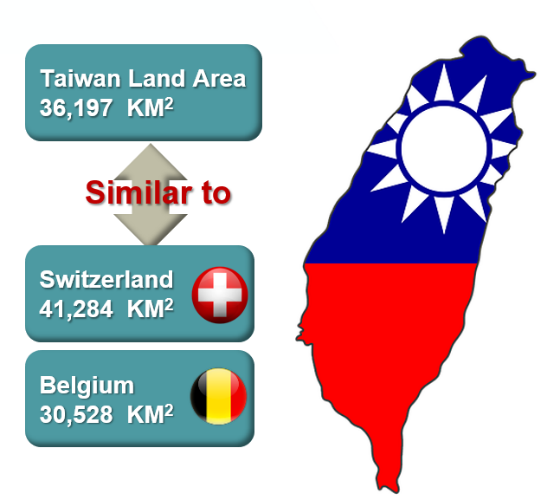
Taiwan is situated in the West Pacific between Japan and the Philippines. The total area of Taiwan property and its outlying islands is around 36,197 km2, with a length of 394 km and 144 km in width. The size is similar to Switzerland (41,284 km2) and Belgium (30,528 km2).
Taiwan is in the heart of Asia Pacific, a critical hub for global logistics. It takes 2.55 hours flying from Taiwan to 6 major Asian cities, including Tokyo, Seoul, Beijing, Shanghai, Hong Kong and Singapore. If going by sea, it takes 53 hours from Taiwan to 5 major Asian ports - Manila, Singapore, Hong Kong, Shanghai and Tokyo.
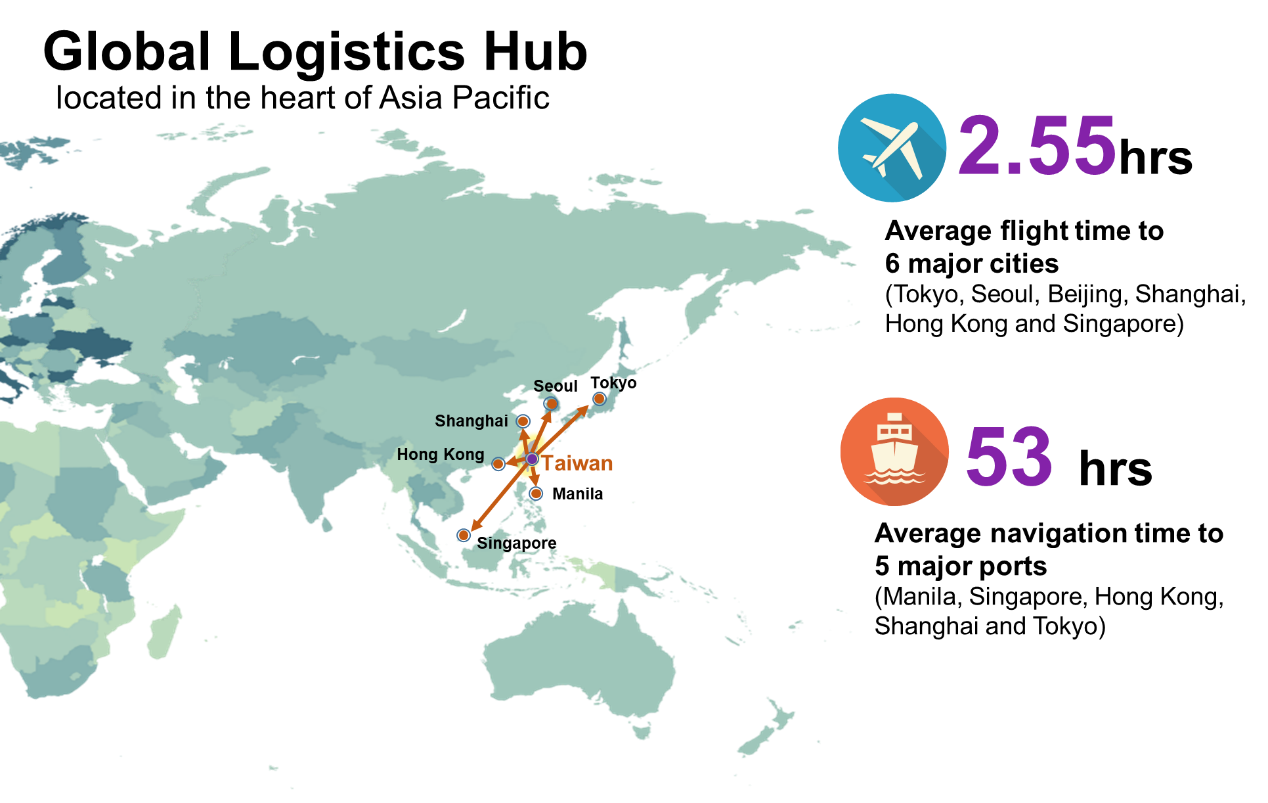
Sitting in the path of warm ocean currents off the east coast of continental Asia, Taiwan is uniquely blessed with a wide range of climatic zones from tropical to temperate. The weather is humid but mild all year. In the summer time from June to September, the average temperature can go up to 38 °C, and it is usually a typhoon season. The average annual temperature is around 22°C, 18°C in January and 29°C in July. The weather and the surrounding, in combination of fertile soil and enough sunshine, make Taiwan an agricultural and aquacultural paradise
Population and Language
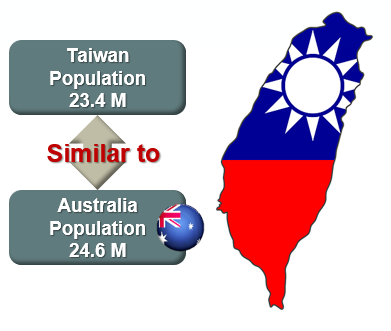
The population in Taiwan is approximately 25 million. It is also home to over 541,000 new immigrants, mostly from China and Southeast Asia.
Fluent in Mandarin (Chinese) and English and familiar with ethnic Chinese culture and mindsets, as well as numerous new immigrants, Taiwanese businesses provide an excellent entry point for expanding the ASEAN and Mainland Chinese market.
Politics
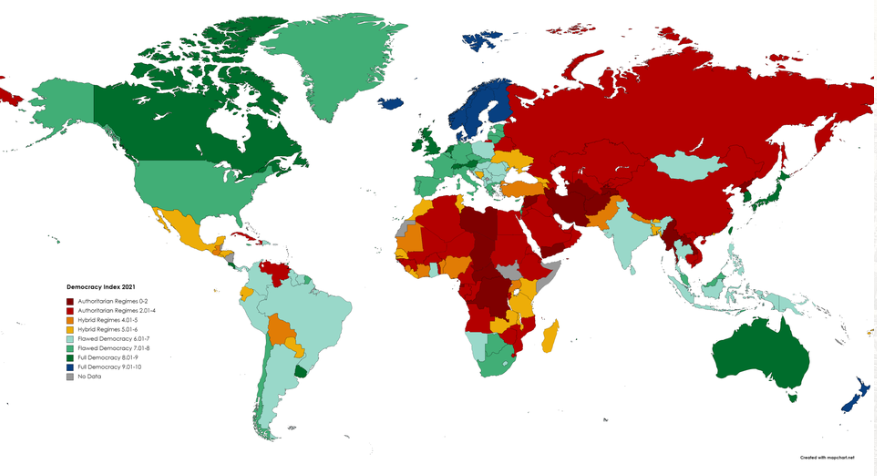
Taiwan has been ranked as the No. 1 "full democracy" in Asia, jumping three places in the 2021 Democracy Index rankings from the previous year, according to a report released by the Economist Intelligence Unit (EIU). This indicates Taiwan's strong bonds in democracy with the western world.
 The president and vice president are directly elected, serve terms of four years and may be re-elected for one additional term. In May 2024, after the presidential election, Lai Ching-te (left) and Hsiao Bi-khim (right) were sworn in as the 16th-term ROC (Taiwan) president and vice president.
The president and vice president are directly elected, serve terms of four years and may be re-elected for one additional term. In May 2024, after the presidential election, Lai Ching-te (left) and Hsiao Bi-khim (right) were sworn in as the 16th-term ROC (Taiwan) president and vice president.
Economy
Over the past eight years, Taiwan's economy has continued to grow. From 2016 to 2023, Taiwan's average economic growth was 3.1%, which is superior to Singapore, South Korea, and Hong Kong, achieving the best performance in East Asia. It also surpasses the global average growth rate. Additionally, the per capita GDP in Taiwan broke through $30,000 in 2020, showcasing Taiwan's economic achievements to the world.
Travel Tips
Entry Visas
Citizens of more than 60 countries and territories are eligible for visa-exempt entry for a period of 30 or 90 days. You may refer to the website of “Bureau of Consular Affairs, Ministry of Foreign Affairs” to see if you are eligible for visa-exempt entry.
Taiwan Employment Gold Card
Since 2018, Taiwan launched “Taiwan Employment Gold Card” to attract highly-skilled foreign talent. This is a 4-in-a card, which combines resident visa, work permit, Alien Resident Certificate (ARC) and re-entry permit, allowing foreign employees to leave and re-enter Taiwan multiple times over the course of 1-3 years. Clink here to learn further information.
Accommodation in Taiwan:
If you haven’t determined where to stay in Taiwan, You may find useful hotel information on the Meet Taiwan website.
Currency
Taiwan New Dollar (NTD). Each foreign visitor may bring up to NT$100,000 into Taiwan, and is required to declare amounts in excess of the above threshold to the Customs Authority when entering. Foreign currency can be exchanged at the airport as well as at authorized banks and hotels. Internationally recognized credit cards are accepted in most hotels, many restaurants, and many shops. Exchange Rate Converter
Time Zone UTC+8, no seasonal adjustments. Time Zone Converter
Electricity AC 110V/60 Hz
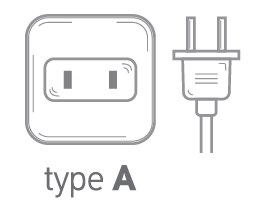
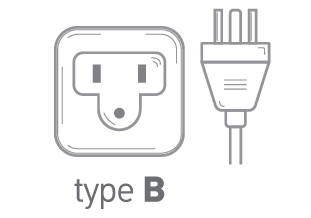
Emergency
Taiwan is generally safe and is with minimal risk of violent, however, visitors should exercise normal precautions and be aware of their surroundings at all times. If foreign visitors need medical assistance, they can go to nearby hospitals or clinics, bringing their passports. Payment of hospital and other expenses is the patient’s responsibility. Some emergency telephone numbers may be worth to know:
- Fire/Medical: 119
- Police: 110
- English-Speaking Police: (02)2556-6007 (24 hours)
- English Directory Assistance:106
(Source: International Trade Administration)
Internet Access
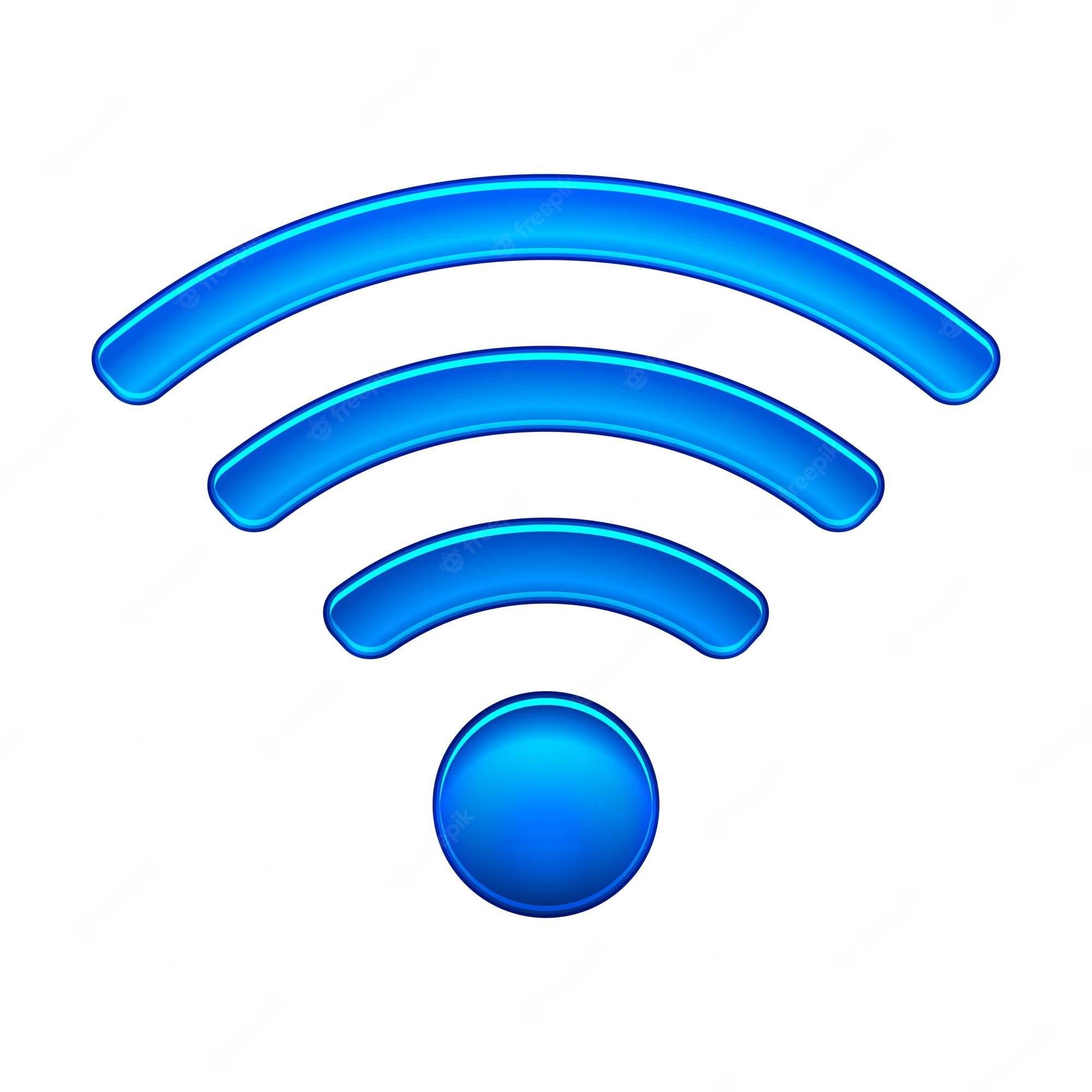 Broadband and Wi-Fi services are widely available in major cities. Nearly all business hotels, restaurants and coffee shops provide free Wi-Fi access. 5G services is applicable since Taiwan has released 5G spectrum licenses in 2020 and right now there are 5 carriers. There are 4 mobile phone providers and many re-sellers selling dozens of SIM cards at TPE Airport. Please choose “Cellular Service Center” to find out their locations and operation hours at your landing terminal. The Services & facilities at TPE Airport is also available in Janpanese.
Broadband and Wi-Fi services are widely available in major cities. Nearly all business hotels, restaurants and coffee shops provide free Wi-Fi access. 5G services is applicable since Taiwan has released 5G spectrum licenses in 2020 and right now there are 5 carriers. There are 4 mobile phone providers and many re-sellers selling dozens of SIM cards at TPE Airport. Please choose “Cellular Service Center” to find out their locations and operation hours at your landing terminal. The Services & facilities at TPE Airport is also available in Janpanese.
Airports:
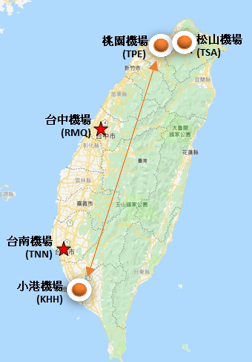 Taiwan has three major international airports: Taoyuan International Airport (TPE), close to the capital city Taipei, is the main gateway to the island. Hsiaokang International Airport (KHH), located in Kaohsiung Northern Taiwan, offers regular flights to major destinations in the region. Taipei Songshan Airport (TSA), located in downtown Taipei, offers direct flights to and from Tokyo Haneda, Seoul Gimpo and major cities in China.
Taiwan has three major international airports: Taoyuan International Airport (TPE), close to the capital city Taipei, is the main gateway to the island. Hsiaokang International Airport (KHH), located in Kaohsiung Northern Taiwan, offers regular flights to major destinations in the region. Taipei Songshan Airport (TSA), located in downtown Taipei, offers direct flights to and from Tokyo Haneda, Seoul Gimpo and major cities in China.
Transportation at TPE Airport:
 By Metro Taoyuan to Taipei: It takes approximately 40 minutes to drive from the airport to Taipei city. Visitors heading North can also take “Metro Taoyuan” travelling to Taipei. Schedule and fare information is available in Chinese, English, Japanese and Korean.
By Metro Taoyuan to Taipei: It takes approximately 40 minutes to drive from the airport to Taipei city. Visitors heading North can also take “Metro Taoyuan” travelling to Taipei. Schedule and fare information is available in Chinese, English, Japanese and Korean.
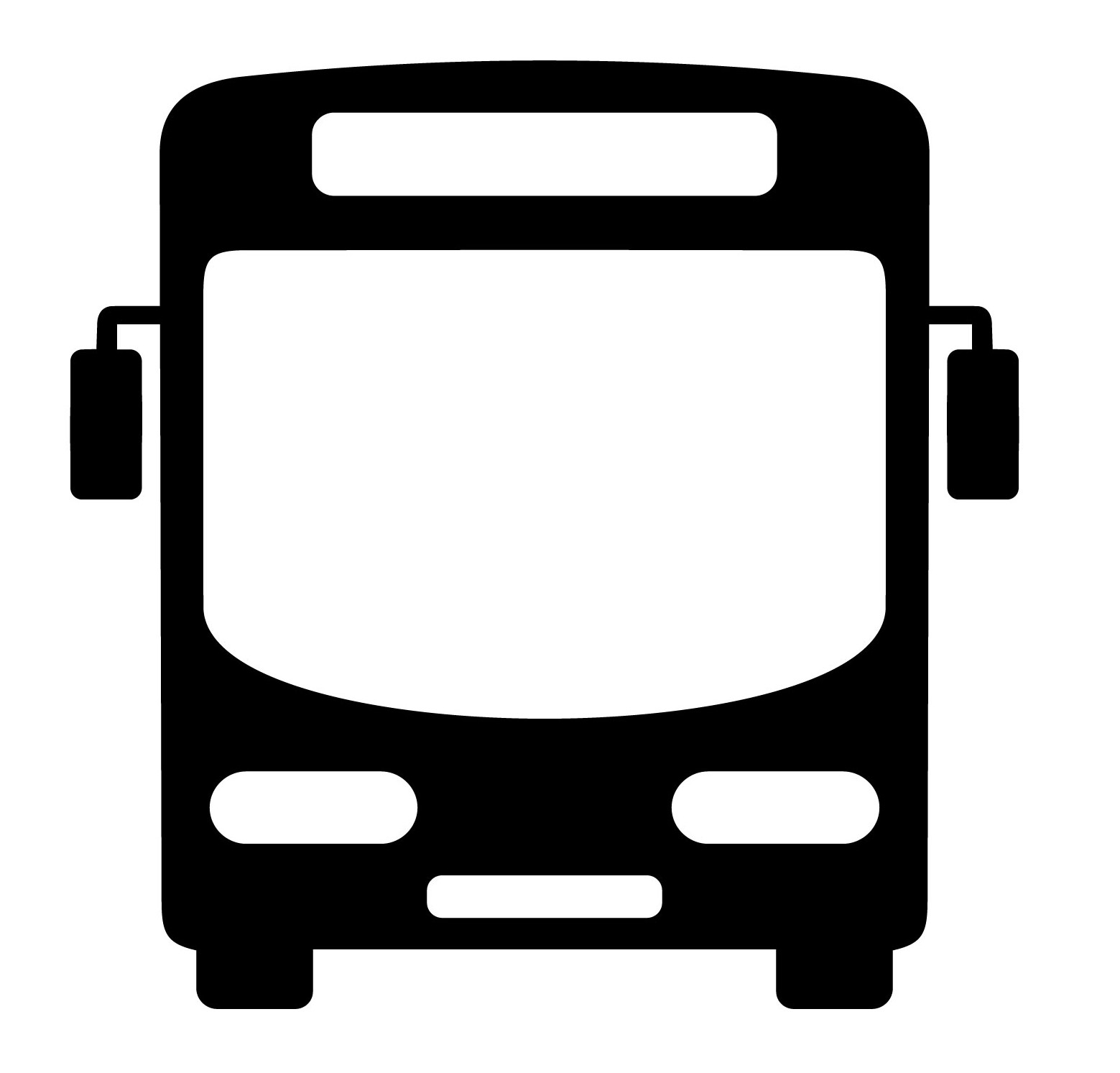 By Bus: Regular hotel shuttle buses to Taipei and buses to other cities like Hsinchu, Taichung or Kaohsiung are available at the airport too.
By Bus: Regular hotel shuttle buses to Taipei and buses to other cities like Hsinchu, Taichung or Kaohsiung are available at the airport too.
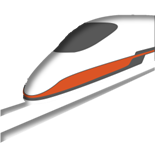 By Taiwan High Speed Rail (HSR): Another option travelling to major cities from this airport is by HSR, which currently connects 12 Taiwan western cities. Time table and faire information is also available in Chinese, English and Japanese.
By Taiwan High Speed Rail (HSR): Another option travelling to major cities from this airport is by HSR, which currently connects 12 Taiwan western cities. Time table and faire information is also available in Chinese, English and Japanese.
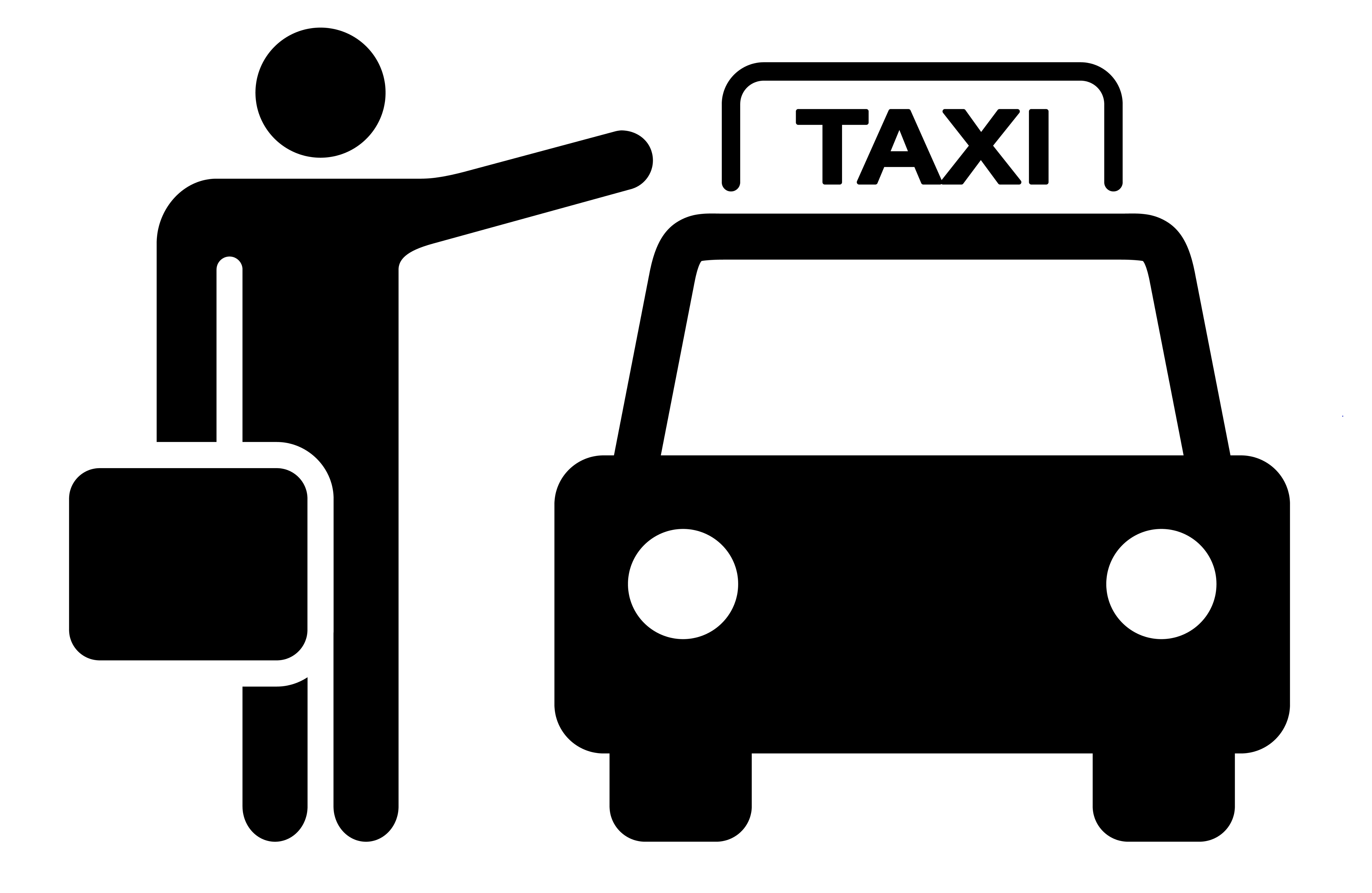 By Taxi: Taxis operating by shifts are located at the west side(meeting point 26) of the Terminal 1's and Terminal 2's Arrivals Lobby at the TPE Airport. Taxi fare is charged slightly differently throughout the country. For instance, in Taipei, the first 1.25km is NT$70. From that point on, every additional 200m is NT$5. Night cab charges NT$20 more per ride. Please press here to find out estimated fares for taxi trips from TPE Airport to different destinations.
By Taxi: Taxis operating by shifts are located at the west side(meeting point 26) of the Terminal 1's and Terminal 2's Arrivals Lobby at the TPE Airport. Taxi fare is charged slightly differently throughout the country. For instance, in Taipei, the first 1.25km is NT$70. From that point on, every additional 200m is NT$5. Night cab charges NT$20 more per ride. Please press here to find out estimated fares for taxi trips from TPE Airport to different destinations.
 Other useful information about transportation at TPE airport
Other useful information about transportation at TPE airport
Car Rental and other transportation information provided by the TPE Airport is available in Chinese, English and Japanese too.
Custom regulations on entry and personal belongs
Personal belongings and household articles (excluding controlled or restricted articles) carried by inbound passengers may be granted duty exemption. Please refer to the following links for details: Arrival Declaration / Taipei Customs Office / Quarantine System for Entry/